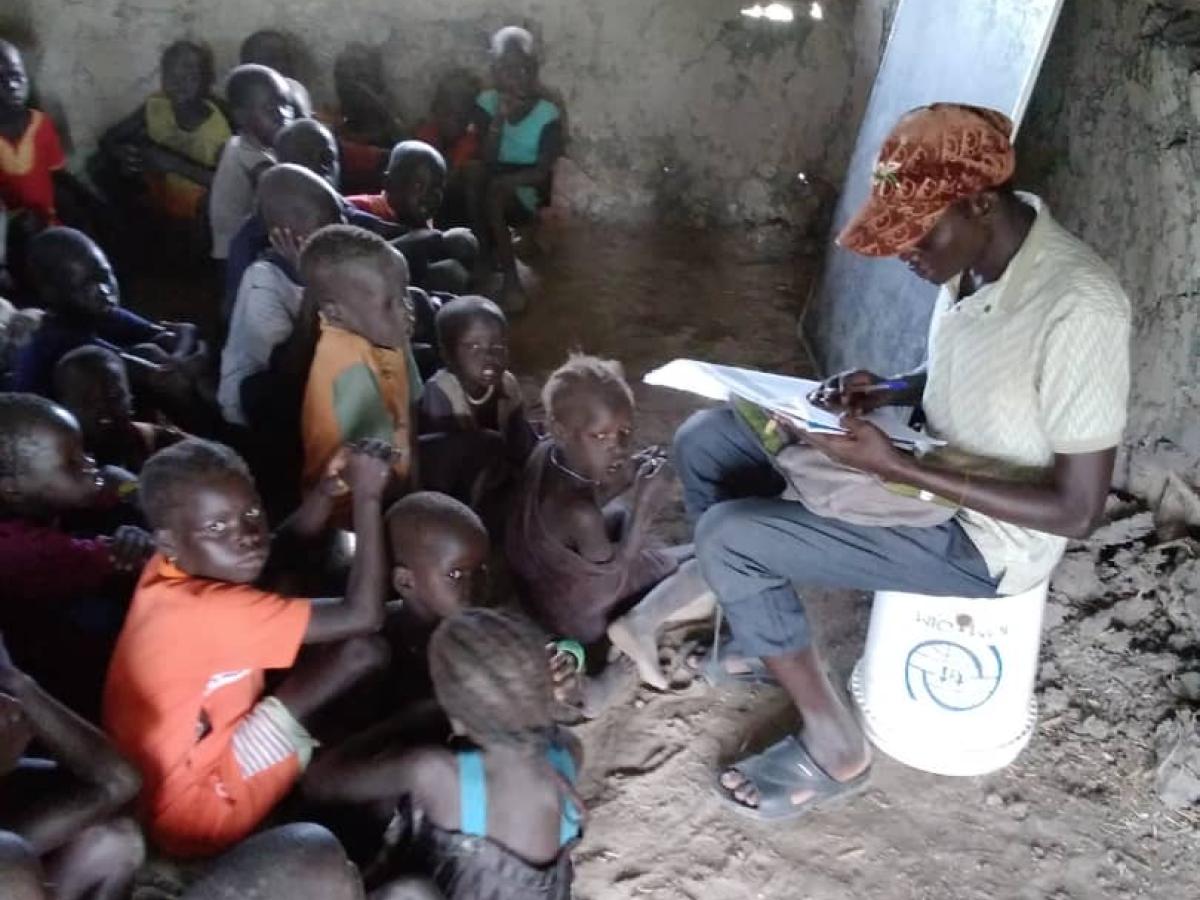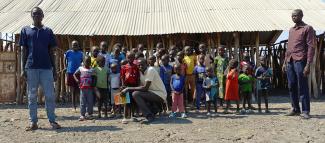A renewed sense of ownership and pride at Nyangore Primary School has encouraged nearby schools to drive positive change.
Since 2011, USAID has provided more than $328 million to help millions of South Sudanese learn foundational literacy and numeracy skills, gain employment, make safe health choices, and promote peace.
In remote Ulang County, Upper Nile State, eager students crowded into small classrooms at the Nyangore Primary School. Determined to get an education and without enough space inside the school, many students were forced to sit on the ground, exposed to the sunlight or in the shade of nearby trees. Excessive overcrowding, limited classroom space, and inadequate infrastructure disrupted both teaching and learning. Teachers struggled to find time and space to give individual students the attention they needed. Seeing their children’s learning opportunities fade, many parents and guardians pulled their kids out of the school; enrollment fell from 728 in 2021 to 338 in 2022.
Struggling to keep students in school, the School Management Committee— composed of school leadership, teachers, parents and guardians, the Head Girl, and the Head Boy—found a way forward with the support of the Girls’ Education in South Sudan (GESS) program. Through a series of hands-on workshops on topics such as resource management and community engagement, the committee designed a new school development plan which included a revised budget that reflected the school’s new reality.
With a new plan in-hand, the school qualified for a grant through GESS.

Grade 6 students crowd into a classroom at Nyangore Primary School.
GESS

Third-grade students at Nyangore Primary School listen to their teacher while seated on the ground.
Ter Keat Nyith, School Officer for Ulang County, Upper Nile State.
Determined to maximize opportunities for students, the committee mobilized the community, rallying parents, local traders, and volunteers to collect funds and in-kind contributions. After collecting enough resources, the committee built a temporary learning space that expanded the school’s classrooms and gave students and teachers more space to learn and teach. By 2023, enrollment grew to 540 students, thanks to the new structure.
A renewed sense of ownership and pride at Nyangore Primary School has encouraged other schools in the area to drive positive change. “The rest of the schools in Ulang County have witnessed these efforts and have started making plans. I hope they will also work hard to find additional resources to support their development plans,” says the Head Teacher.
Primary TextThe rest of the schools in Ulang County have witnessed these efforts and have started making plans. I hope they will also work hard to find additional resources to support their development plans. - The Nyangore Primary School Head Teacher

Students and teachers at Nyangore Primary School stand in front of the newly-built learning facility.
Ter Keat Nyith, School Officer for Ulang County, Upper Nile State.
The majority of South Sudan’s population are youth between 15 and 29 who do not have the education or skills they need to lead healthy, peaceful, and productive lives. Seventy-two percent of the population is under 30, representing one of the largest youth bulges in the world, according to the World Bank.
With few opportunities to earn an education or find employment, young people often fall prey to criminal activity, join armed groups, are the victims of early marriage, and miss critical opportunities to shape the future of their communities and country. According to the International Data Corporation, girls in South Sudan are more likely to die in childbirth than finish secondary school.
Working with other donors under the GESS program, USAID increases access to equitable and quality education for all students, including girls and those with disabilities. For more information and to read more about USAID's work in education, please see here.

